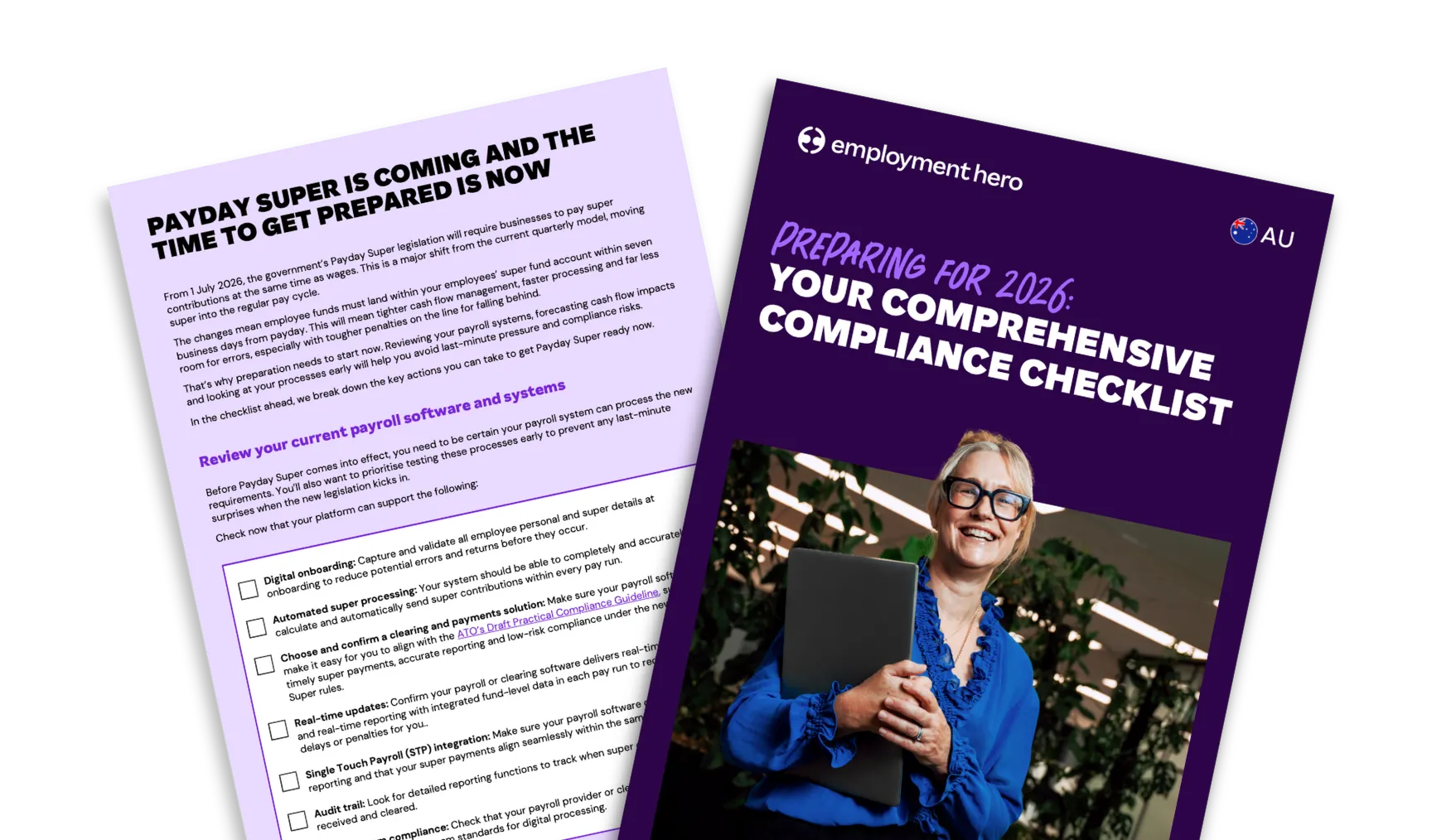The Closing Loopholes Bill Explained (Part 1)
Published
The Closing Loopholes Bill Explained (Part 1)
What is the Closing Loopholes Bill?
The Closing Loopholes Bill, officially known as the Fair Work Amendment (Closing Loopholes) Bill 2023, introduced by the Australian Government, represents significant reform to the country’s workplace laws. The Bill has been split into two parts, addressing various aspects of new and existing aspects of Australian employment law. These changes, once implemented, are expected to significantly impact the employment landscape in Australia, with implications for employers, employees and unions.
This factsheet has been created to assist you in understanding the Closing Loopholes Bill, as well as what it might mean for your business.
Key points:
- The Closing Loopholes Bill is split into two parts: After reaching an agreement with the Senate crossbench, the Federal Government has divided the Closing Loopholes Bill into two separate parts.
- Part 1 of the Bill was passed 7 December 2023: Parliament has passed key provisions of Part 1 of the Bill, which include measures on wage theft, labor hire (‘same job, same pay’), and workplace delegates.
- Part 2 was passed 12 February 2024: The remaining elements of the Bill were under consideration, including proposed provisions on intractable bargaining declarations, casual employment, and independent contractors. For detailed information on Part 2, download our Part 2 of the Closing Loopholes Bill explained – Factsheet to stay informed on these critical updates. We also have an Employment Law Update: The Closing Loopholes Bill Part 2 webinar, where we will discuss all the key components.
- Employers may already be on the backfoot: As another year approaches, employers should consider assessing the impact of the new laws on their business. This includes evaluating the effects on current and future enterprise bargaining and their response to any Fair Work Commission applications for ‘same job, same pay’ orders. To help you track all significant dates, download our Closing Loopholes Bill: Important Dates Calendar.
Disclaimer: The information in this factsheet is relevant as at 11 December 2023, and has been prepared by Employment Hero Pty Ltd ABN (11 160 047 709) (Employment Hero). The views expressed herein are general information only and are provided in good faith to assist employers and their employees. The Information is based on data supplied by third parties. While such data is believed to be accurate, it has not been independently verified and no warranties are given that it is complete, accurate, up to date or fit for the purpose for which it is required. Employment Hero does not accept responsibility for any inaccuracy in such data and is not liable for any loss or damages arising either directly or indirectly as a result of reliance on, use of or inability to use any information provided in this article.
This factsheet has been reviewed by employment law specialists at EI Legal.
What’s happened?
The Labor Government introduced the Fair Work Legislation Amendment (Closing Loopholes) Bill 2023 on 4 September 2023. After passing the House of Representatives on 29 November, it moved to the Senate for further debate.
In an unexpected turn, the Labor Government reached an agreement with The Greens and Crossbench, including independent Senators Jacqui Lambie and David Pocock, leading to the Bill being divided into two parts. This split facilitated the rapid passage of several key measures through both the Senate and the House, seeing part 1 of the Closing Loopholes Bill pass on 7 December 2023. This expedited process allowed little time for detailed debate on these measures.
The remainder of the more contentious provisions in the original Bill will need to be debated in Parliament in early 2024 (post February) – now in the “Closing Loopholes No. 2 Bill”
Stay ahead of legislative changes
Overall, these reforms represent a shift towards stronger worker protections and a more regulated employment environment. For SMEs, understanding and preparing for these changes is crucial, as they could significantly impact how your business might need to manage its workforce and comply with evolving employment laws. To complement your understanding, download our Secure Jobs, Better Pay Bill Guide, which breaks down what the Secure Jobs, Better Pay Bill means for your business.
To keep up-to-date with Australian employment law changes as and when they happen, keep your eyes on our free seasonal Employment Law Updates resources and employment law webinar series.
Before you download the factsheet we just need some details
Related Resources
-
 Read more: HR Managers: Don’t just survive the festive season, master it
Read more: HR Managers: Don’t just survive the festive season, master itHR Managers: Don’t just survive the festive season, master it
Make year-end easier: manage leave, payroll, parties and shutdowns with confidence. Get practical tips for Australian SMEs. Download the free…
-
 Read more: Preparing for 2026: Your Compliance Checklist
Read more: Preparing for 2026: Your Compliance ChecklistPreparing for 2026: Your Compliance Checklist
Get your business ready for the 1 July 2026 changes. See practical steps for Payday Super, cash flow planning and…
-
 Read more: Monthly business budget template for employers
Read more: Monthly business budget template for employersMonthly business budget template for employers
Plan your monthly income and expenses with our free monthly business budget template. Download today to track cash flow and…























